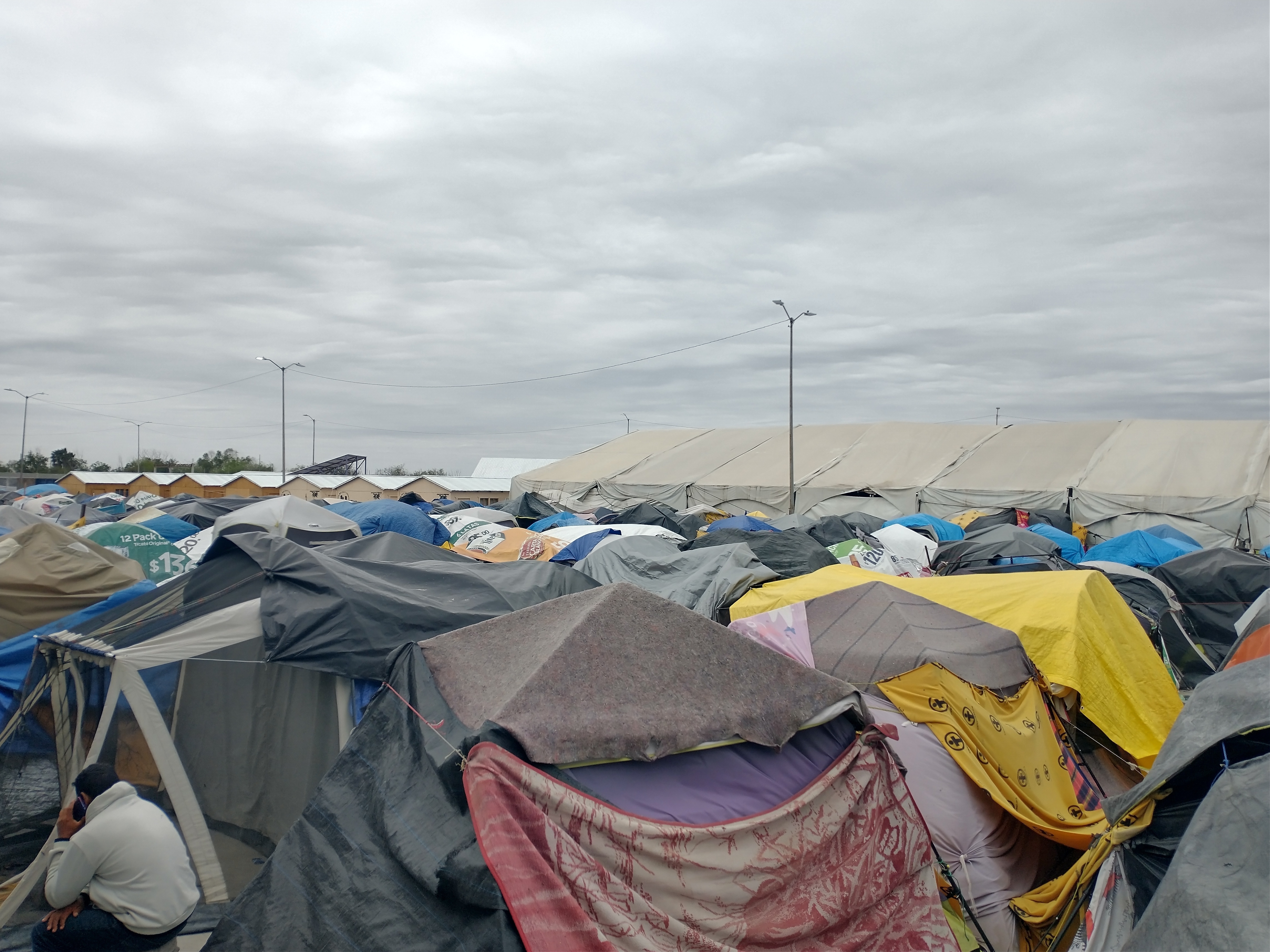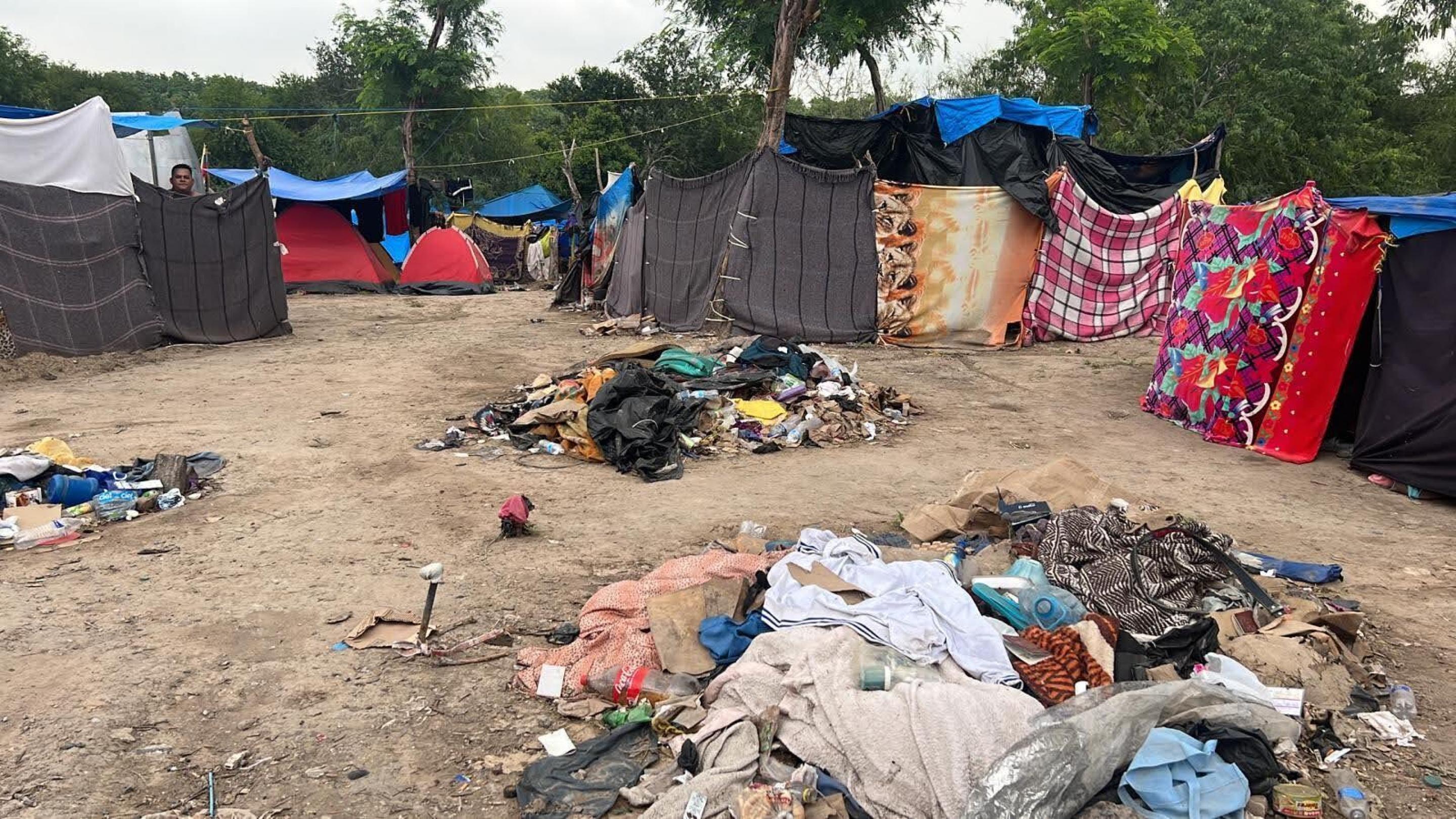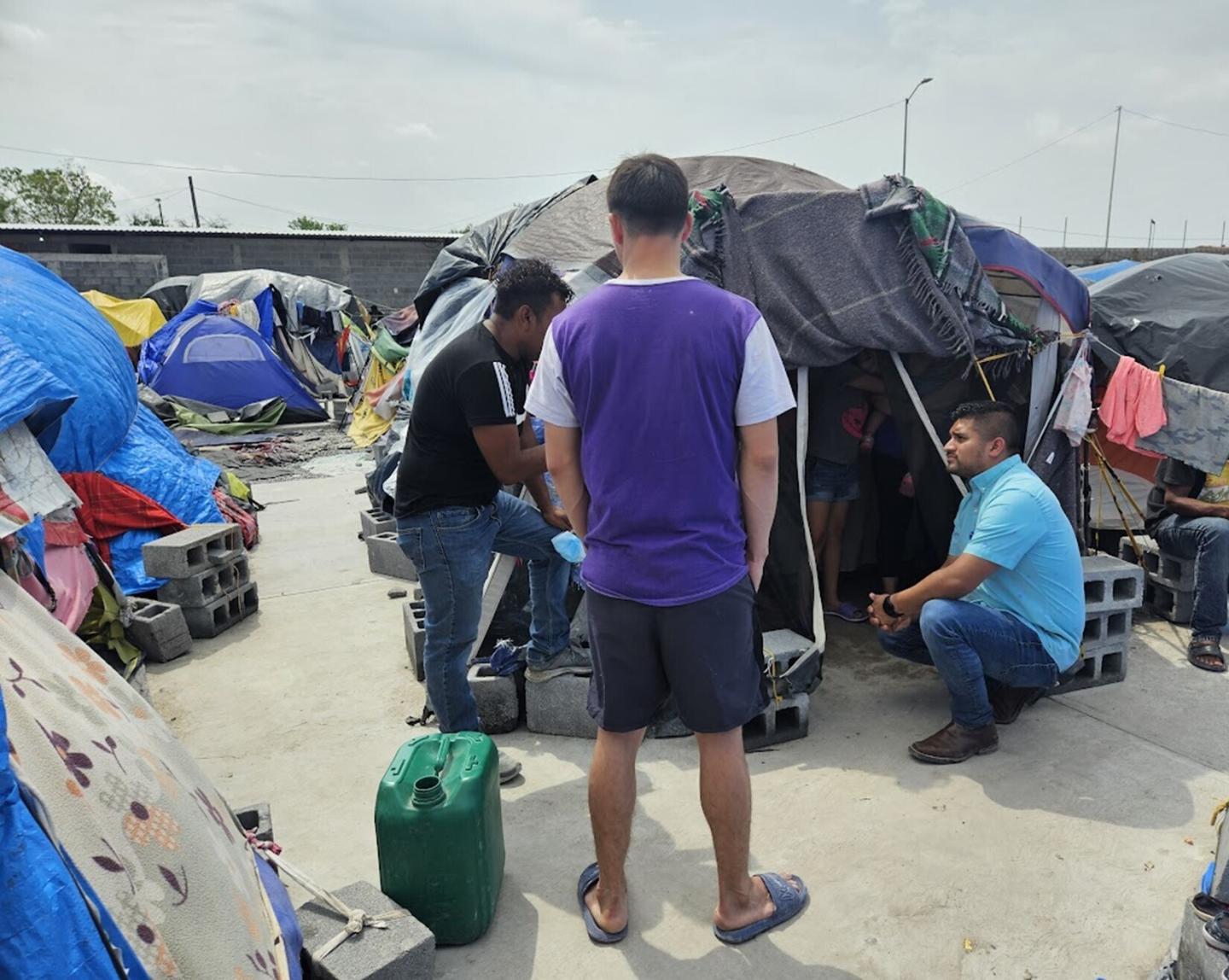New burdens on asylum seekers follow the end of Title 42

On May 11, the Biden administration ended a set of immigration restrictions known as “Title 42,” referring to a section of federal public health law that the Trump administration used at the onset of the pandemic to restrict immigration to the U.S.
Although it was based on the premise that migration would further spread the COVID-19 virus, the policy denied migrants their legal rights to seek asylum in the U.S. Since March 2020, the policy had been used to expel those seeking asylum at the border more than 2.8 million times.
Now that Title 42 has ended, migrants are hoping they can enter the U.S. and request asylum as they did prior to 2020. However, the U.S. Department of Homeland Security recently announced a new regulation, which will present new and unnecessary obstacles for those who most need a safe and secure place to live.
As people of faith, we need to consider the new regulation through the eyes of Jesus, who asks his followers to welcome the stranger, love their neighbors and take care of the physical needs of the most vulnerable. We need to oppose key aspects of these changes on humanitarian and faith-based grounds.
On its face, the regulation, known as the “Circumvention of Lawful Pathways,” encourages migrants to avail themselves of lawful, safe, and orderly pathways into the U.S. However, the pathways are impractical and will increase the danger for people seeking safety at the border today.

Photo courtesy of The Sidewalk School.
The new policy is built on the negative premise that migrants are ineligible for asylum – unless they meet one of a set of three criteria. The first way to become eligible is for migrants to apply for and be denied asylum in a country that they have passed through, before they apply for asylum in the U.S.
Applying for asylum in a country such as Mexico, however, is problematic for several reasons: the government does not have the capacity to process large numbers of asylum seekers; migrants may not have family to stay with as they do in the U.S.; they are likely to have difficulty accessing legal counsel; and their lives may still be in danger due to the security context in the country.
The U.S. Department of State’s country summary on Mexico for instance reads, “Violent crime – such as homicide, kidnapping, carjacking, and robbery – is widespread and common in Mexico.” Furthermore, recent incidents like the death of nearly 40 people in a Juarez immigrant detention center fire highlight the inability of officials in Mexico to humanely process migrants seeking asylum.
If migrants do not first apply for asylum in another country, the new regulation stipulates that, instead, they can use a specific smart phone app called “CBP One” to request entrance to the U.S. and an eventual screening appointment with U.S. immigration officials.
Using the phone app creates a daily obstacle for those who do not have reliable access to a phone and the internet, those who speak only indigenous languages or those who do not know how to navigate digital technology. If migrants can navigate the app, they still enter an asylum equivalent of the lottery, hoping their request is chosen for limited numbers of appointments at official points of entry.
According to Abraham Díaz Alonso, MCC Central States immigration program coordinator in Texas, those who are not able to obtain an appointment will continue waiting in one of the many migrant encampments near ports of entry, often sleeping in makeshift sheds and tents until they are granted an interview where they can state their case for asylum.

In Mark 2:23-27, Jesus encourages the Pharisees to consider the impact of rules and laws that lead to physical suffering. He refers to David and his companions eating bread reserved for priests alone and uses this to make a clear distinction between rules that promote well-being and those that stifle it. Policies that lead to inhumane conditions for the most vulnerable among us should not be tolerated by followers of Jesus.
Churches and nonprofits are struggling to keep abreast of recent developments as they respond to the needs of an increasing number of migrants who have been gathering at the border this spring, hoping that the lifting of Title 42 restrictions would mean their chance to enter the U.S. is finally here.
Díaz Alonso recently recounted the testimony of Moisés, a husband and father whose real name has been changed for his protection. “We’ve waited months in this encampment to apply for asylum. We have traveled miles and months to get here. We cannot just give up and turn back. It just isn’t a real option. We return and we face persecution and even death. Who would expose their children to these options?”
Those who do get an appointment will be granted the right to an initial screening where they will have to demonstrate that they are in danger of persecution on account of race, religion, nationality, membership in a particular social group, or political opinion and now also that they properly followed the new rules for eligibility.
According to a Department of Homeland Security fact sheet, the screenings will occur rapidly in a process known as expedited removal. This accelerated process, also used by previous administrations, can result in inaccurate assessments of asylum eligibility and decrease the likelihood that individuals will have time to consult with legal counsel. Migrants who fail to meet the burden of proof will be subject to removal and unable to re-enter the country for a minimum of five years.
There will be exceptions to the “Circumvention of Lawful Pathways” policy in extraordinary cases, and immigration advocacy groups have yet to see the policy play out over time, but by and large, migrants at the southern U.S. border will find it difficult to access asylum.
These arduous burdens placed on asylum seekers by U.S. immigration officials will ultimately prevent otherwise eligible individuals from finding safe refuge in the U.S. Lawsuits have already been brought to challenge the new policies, and it is possible that one or more of the new regulations will not pass legal standards, but in the meantime, many people will be sent back to communities where they are unsafe.
Pray for God to work in miraculous ways for each person and family at the border. He is the God of the brokenhearted and the repairer of broken systems.”
Rachel Diaz
Immigration attorney
Jesus calls his followers to feed the hungry and welcome the stranger in Mathew 25, and yet biblical values of love, mercy and compassion are glaring omissions from our immigration system. Instead of listening to the heart-wrenching stories of migrants on the move, our federal policymakers repeatedly ignore their needs.
One change the Biden administration has made will offer hope for a limited number of migrants from four specific countries and serves as the third way to avoid the presumption of ineligibility. A new “humanitarian parole” program for migrants from Cuba, Haiti, Nicaragua and Venezuela will allow 30,000 people per month up to two years of lawful status in the U.S. if they are able to acquire a sponsor, submit the required documents and fly to the interior of the U.S.
Such a policy, of course, excludes those without the means to purchase a plane ticket or find a U.S.-based sponsor. Communities of faith, working with refugee resettlement agencies, are looking at ways to assist migrants who qualify for the program.
One important way to get involved in the struggle is to pray, says Rachel Diaz, an immigration attorney who works with MCC, providing legal assistance to immigrants in South Florida. “Pray for God to work in miraculous ways for each person and family at the border. He is the God of the brokenhearted and the repairer of broken systems.”
We can also pray for our policymakers in Washington, D.C., and appeal directly to members of Congress and to the White House to show compassion and mercy toward migrants. The following policy changes could make a big difference for asylum seekers at the U.S.-Mexico border.
The U.S. government should:
- Expand staffing and increase access to trauma-informed asylum processing at ports of entry.
- Communicate regularly with faith-based and other nonprofit organizations at the border regarding planned or recent changes, offering grants to support their financial needs.
- Increase legal pathways for migration, including humanitarian parole, visa access and refugee capacity, thus reducing the need for crossing without documentation.
- Shift resources away from inhumane, for-profit detention to invest in community-based asylum case management, adjudicating cases in a timely manner.
- Address the root causes of migration throughout Latin America, the Caribbean and other countries where immigrants commonly originate.
While we have a long way to go in reforming our immigration system, there is hope that public awareness of this issue is higher than ever. People of faith are especially engaged and cognizant of both the extreme needs of migrants as well as their own ability to address them directly and call for positive change. Now is the time to implore God’s guidance and to talk about the need to improve our asylum system, reduce the burdens on asylum seekers and fulfil our biblical responsibility to our neighbors in need.

